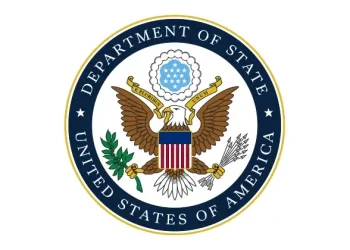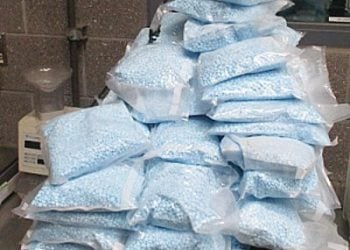Deputy Secretary of State Christopher Landau met with Chinese Executive Vice Foreign Minister Ma Zhaoxu on the sidelines of the United Nations General Assembly in New York.
The discussion emphasized curbing fentanyl flows, managing migration issues, and navigating global security flashpoints, underscoring the fragile but vital state of US-China relations.
Opening the Dialogue at UNGA
During the meeting, Landau stressed the need for constructive communication between Washington and Beijing at a time of heightened global tensions. He urged China to take concrete action in halting fentanyl precursor shipments, which fuel America’s ongoing opioid crisis. The talks also touched on immigration enforcement and broader international stability.
Fentanyl Flows and US Domestic Security
One of the meeting’s most urgent topics was the fentanyl crisis in the United States. Synthetic opioids remain the leading cause of overdose deaths, with fentanyl responsible for more than 48,000 American fatalities in 2024 alone.
China remains a central source of precursor chemicals used to manufacture fentanyl, despite efforts to regulate the trade since 2019. US officials argue that further cooperation is essential to cutting off illicit supply chains and saving lives. By pressing the issue at this level, Landau emphasized the crisis as both a public health and national security concern.
Migration and Law Enforcement Cooperation
Another priority was the return of Chinese nationals who lack the right to remain in the United States. Washington continues to push for Beijing’s cooperation in enforcing immigration law, highlighting migration as an emerging dimension of bilateral relations.
Although overshadowed by larger geopolitical disputes, cooperation in this area is seen as a practical step toward addressing shared challenges in cross-border law enforcement.
Regional Security Flashpoints
Taiwan Strait
The two sides exchanged views on peace and stability in the Taiwan Strait, a region central to global trade and security. US officials reiterated their commitment to maintaining freedom of navigation and preventing miscalculation in one of the world’s most volatile flashpoints.
Russia-Ukraine War
Landau also raised the ongoing conflict in Ukraine, underscoring the US stance on defending sovereignty and deterring authoritarian aggression. China has positioned itself as a potential mediator, but Washington remains wary of Beijing’s balancing act between neutrality and support for Moscow.
Haiti’s Instability
The meeting addressed Haiti’s worsening crisis, which continues to strain international resources. Both Washington and Beijing acknowledged the humanitarian and security implications, though their approaches to crisis management often diverge.
US and China: Competing Visions in Global Unrest
The conversation reflected deeper contrasts in US and Chinese objectives during global instability. While both powers emphasize dialogue, they approach world order with sharply different strategies.
| US Objectives | China’s Objectives |
|---|---|
| Maintain primacy in Indo-Pacific and Middle East | Promote multipolarity and Belt and Road Initiative |
| Defend allies and freedom of navigation | Strengthen autonomy through “Made in China 2025” |
| Counter terrorism and authoritarian influence | Expand role in global governance and Global South |
| Halt fentanyl flows and enforce immigration | Protect sovereignty over Taiwan and South China Sea |
Takeaways from the Meeting
-
Landau pressed China for action on fentanyl shipments and migration enforcement.
-
Both sides discussed Taiwan, Ukraine, and Haiti as pressing security challenges.
Broader Diplomatic Context
The timing of the meeting—held at the UN General Assembly—highlighted both nations’ roles as central actors in global governance. By keeping dialogue open, Washington and Beijing signal to the international community that communication remains possible even amid intensifying rivalry.
These engagements do not erase disputes over trade, tariffs, or technology, but they provide critical guardrails against further escalation. For allies and adversaries alike, the optics of continued US-China talks reassure that pathways to pragmatic cooperation still exist.
Managed Competition with Global Stakes
Deputy Secretary Landau’s meeting with Vice Foreign Minister Ma underscores the delicate balance shaping modern US-China relations. Constructive communication remains the only viable means of managing a rivalry that spans security, trade, migration, and global health.
For the United States, halting fentanyl flows is not only a diplomatic priority but a life-and-death challenge affecting communities nationwide. For China, defending sovereignty and shaping global governance remain paramount. The conversation in New York reflected both the tension and necessity of engagement—an essential reminder that, even in times of discord, dialogue is the foundation of international stability.
Sources: US Department of State, BBC, PIIE, and the White House.
Prepared by Ivan Alexander Golden, Founder of THX News™, an independent news organization delivering timely insights from global official sources. Combines AI-analyzed research with human-edited accuracy and context.









